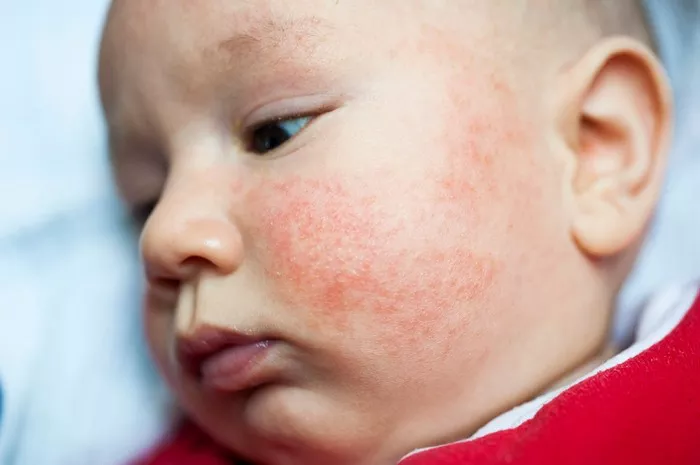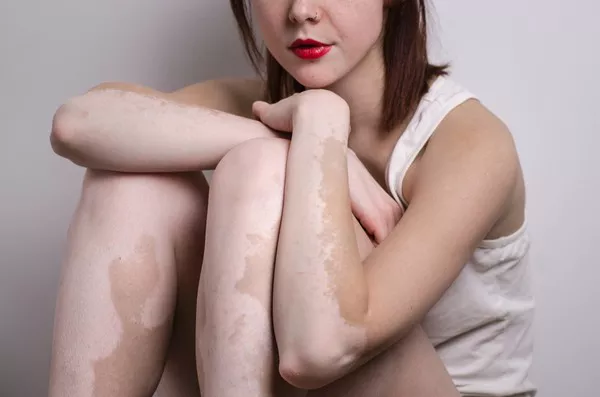Eczema, also known as atopic dermatitis, is a common chronic inflammatory skin condition that can affect infants, causing red, itchy, and inflamed patches on the skin. Managing severe eczema in infants requires a comprehensive approach that includes skincare, identifying triggers, and medical treatment under the guidance of healthcare providers. This article explores effective strategies for treating severe eczema in infants, including symptoms, triggers, skincare routines, medical treatments, and lifestyle adjustments.
Understanding Severe Eczema in Infants
Eczema in infants typically appears as dry, itchy patches on the cheeks, scalp, arms, legs, and other areas of the body. It can be distressing for both infants and parents due to the discomfort it causes and the challenges in managing symptoms. Severe eczema in infants may involve widespread inflammation, persistent itching, and skin infections if not properly treated.
Symptoms of Severe Eczema in Infants
Symptoms of severe eczema in infants can vary, but commonly include:
- Red, Inflamed Skin: Areas of the skin may appear red, swollen, and inflamed.
- Intense Itching: Infants may scratch vigorously, leading to further skin irritation and potential skin damage.
- Dry, Scaly Patches: Skin affected by eczema may become dry, rough, and scaly.
- Weeping or Crusting: In severe cases, eczema patches may ooze fluid or develop crusts.
- Sleep Disturbance: Itching and discomfort can disrupt an infant’s sleep patterns, leading to irritability and fatigue.
- Risk of Infection: Persistent scratching can break the skin, increasing the risk of bacterial or viral infections.
Causes and Triggers of Severe Eczema in Infants
The exact cause of eczema is not fully understood, but it is believed to involve a combination of genetic and environmental factors. Common triggers that can exacerbate eczema symptoms in infants include:
- Allergens: Substances such as dust mites, pet dander, pollen, and certain foods (e.g., cow’s milk, eggs, nuts) can trigger allergic reactions.
- Irritants: Harsh soaps, detergents, wool clothing, and chemicals in skincare products can irritate sensitive skin.
- Dry Skin: Cold weather, low humidity, and frequent bathing without proper moisturization can dry out the skin and worsen eczema.
- Stress: Emotional stress or changes in routine can sometimes trigger or exacerbate eczema flare-ups.
Identifying and minimizing exposure to these triggers is essential in managing severe eczema in infants.
Skincare Routine for Infants with Severe Eczema
A gentle and consistent skincare routine is crucial for managing eczema and protecting the infant’s delicate skin. Key components of a skincare routine for infants with severe eczema include:
Bathing Practices:
- Frequency: Limit baths to once daily or every other day to prevent drying out the skin.
- Water Temperature: Use lukewarm water (not hot) for baths.
- Gentle Cleansers: Use mild, fragrance-free, hypoallergenic cleansers or soap substitutes.
- Avoid Scrubbing: Gently pat or blot the skin dry after bathing instead of rubbing with a towel.
Moisturization:
- Immediate Application: Apply moisturizer immediately after patting the skin dry post-bath to lock in moisture.
- Frequent Application: Moisturize the skin at least twice daily, especially after bathing and before bedtime.
- Emollients: Choose thick, fragrance-free emollients or ointments that provide a barrier to protect the skin (e.g., petroleum jelly, mineral oil).
Clothing and Fabrics:
- Soft Fabrics: Dress infants in loose-fitting, soft cotton clothing that allows the skin to breathe.
- Avoid Irritants: Avoid wool and synthetic fabrics, which can irritate sensitive skin.
Nail Care:
- Keep Nails Short: Trim infant’s nails regularly to minimize skin damage from scratching.
Medical Treatments for Severe Eczema in Infants
In addition to skincare practices, medical treatments may be necessary to manage severe eczema in infants, depending on the severity of symptoms and response to initial interventions. Treatment options may include:
Topical Corticosteroids:
- Low-Potency to High-Potency: Healthcare providers may prescribe topical corticosteroids of varying strengths depending on the severity of eczema.
- Application: Apply sparingly to affected areas as directed by the healthcare provider, usually once or twice daily during flare-ups.
Topical Calcineurin Inhibitors:
- Alternative to Steroids: Non-steroidal creams such as tacrolimus or pimecrolimus may be prescribed for infants with eczema, particularly on sensitive areas like the face and neck.
- Anti-inflammatory Action: These medications work by reducing inflammation and immune system responses in the skin.
SEE ALSO: How Can I Get Rid of Eczema Fast at Home
Antihistamines:
- Itch Relief: Oral antihistamines may be recommended to help relieve severe itching and improve sleep quality in infants with eczema.
- Caution: Use under the guidance of a healthcare provider to ensure safety and appropriate dosage for infants.
Wet Dressings or Bandages:
- Cooling and Moisturizing: Wet dressings or bandages soaked in water or a mild medicated solution (e.g., potassium permanganate) may be applied to areas of severe eczema to cool and soothe the skin.
- Medical Supervision: This technique should be supervised by a healthcare provider to ensure proper application and monitoring for skin irritation or infection.
Oral Medications:
- Systemic Treatment: In rare cases of severe eczema that do not respond to topical treatments, systemic medications such as oral corticosteroids or immunosuppressants may be prescribed under close medical supervision.
Biologic Therapies:
- Advanced Treatment Options: For severe cases of infant eczema that do not respond to conventional therapies, biologic medications targeting specific immune pathways (e.g., dupilumab) may be considered in consultation with pediatric dermatologists or allergists.
Lifestyle Adjustments and Prevention
Managing severe eczema in infants also involves making lifestyle adjustments to minimize triggers and support skin health:
- Allergen Avoidance: Identify and minimize exposure to common allergens, such as pet dander, dust mites, and certain foods, under the guidance of a healthcare provider or allergist.
- Temperature and Humidity: Maintain a comfortable indoor environment with stable humidity levels and avoid extremes of temperature that can exacerbate eczema symptoms.
- Emotional Support: Provide a supportive environment for the infant and family members, as stress and emotional factors can sometimes influence eczema flare-ups.
- Regular Follow-Up: Schedule regular follow-up appointments with healthcare providers to monitor the infant’s skin condition, adjust treatment as needed, and provide ongoing support and education to caregivers.
Conclusion
Severe eczema in infants requires a multifaceted approach that combines gentle skincare practices, identification and avoidance of triggers, and appropriate medical treatments under the guidance of healthcare providers. By establishing a consistent skincare routine, using recommended topical treatments, and making necessary lifestyle adjustments, parents and caregivers can help manage symptoms, reduce flare-ups, and improve the overall quality of life for infants affected by severe eczema. Collaboration with pediatric dermatologists, allergists, and other healthcare professionals is essential in developing a personalized treatment plan that addresses the unique needs of each infant with eczema. Ongoing research and advancements in eczema management continue to enhance our understanding and therapeutic options for this common childhood skin condition.
Related Topics:

























